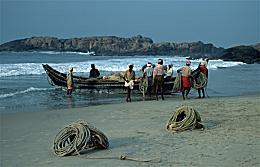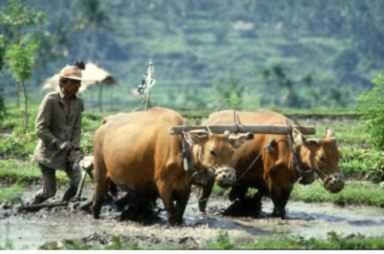|
|
Valuable
Resources for Environmental Economics
52 Case
Studies across India
THE ENVIRONMENTAL
ECONOMICS RESEARCH COMMITTEE
|
|
Environmental Economics
Research Committee (EERC) Chaired by Professor Jyoti Parikh
awarded about Rs.6.5 Crore (US$ 1.5 million) as grants
to research projects in India. EERC funded 57 research projects
from over 30 universities, 23 research institutions and NGOs.The
purpose of the programme was to enhance the capacity for the
application of economic principles and tools to environmental
management in India across the full range of issues such as
priority setting, cost-benefit analysis of alternative policies
for pollution control, resources management and biodiversity
conservation. They cover grass root level case studies or
policy studies in many states of India, carried out by reputed
institutions like Indian Statistical Institute (ISI) Kolkata,
Madras School of Economics (MSE) Chennai, Institute of Economic
Growth (IEG) Delhi, Indira Gandhi Institute of Development
Research (IGIDR) Mumbai, and organization.
The projects funded
by EERC explored the interface between environment and economics
and covered a wide spectrum of issues in 8 thematic areas
:
This may be the largest
compilation of environmental economics studies in India A
rich menu of analytical studies has emerged which fulfills
the long existing vacuum of case studies on India. Together
these studies provide not only micro level understanding but
also national and global perspectives.
The projects tried
to come up with policy suggestions for sustainable natural
resource management. The field level case studies have added
a substantial body of information and understanding to the
natural resource management policy in the country.
Role of EERC
EERC set the priorities
for research in Environmental Economics and coordinated with
other core institutions. EERC undertook the following tasks
and responsibilities:
1. Helped
in identifying the core areas in environmental economics
2. Determined
types of research support, e.g., research projects by faculty
members, Ph.D. fellowships etc.
3. Prescribed
guidelines for research support
4. Evolved
procedures for evaluation of research proposals
5. Provided
financial support for research in environmental and resource
economics
6. Held
series of workshops at various stages of various cohorts
viz inception workshop at conceptual stage, monitoring workshops
mid-way and final workshops to conclude the project.
7. Monitored the progress of the
sponsored projects, and
8. Recommended
norms for publication of reports/books
The main objective
is to enhance the local capacity to undertake research projects
on the economics of environmental management. To achieve this
goal, the EERC provided not only financial support but arranged
meetings, conducted thematic workshops, training programmes
for the investigators of the research projects, provided consultancies
for data analysis and information about resource persons and
encouraged publications based on the findings of the projects.
Under the MoEF implemented
"India: Environmental Management Capacity Building (EMCaB)
Technical Assistance Project" with aid from the World Bank,
several organizations, executed a countrywide environmental
economics capacity Building initiative. Madras School of Economics
coordinated the project. Four core institutions viz.
- Madras School of Economics (MSE)
Chennai;
- Institute of Economic Growth
(IEG) Delhi;
- Indira Gandhi Institute of Development
Research (IGIDR) Mumbai; and
- The Indian Statistical Institute
(ISI) Kolkata,
were identified keeping
in view of their expertise and involvement in the subject
and the desired regional spread of the programme. MSE is the
core institute for overall coordination.
Four sub-committees
from the above selected institutions executed Research, Training,
Curriculum development and Overseas fellowships :
Environmental Economics
Research Committee (EERC) -IGIDR
Environmental Economics
Training Committee for Practicing Economists and Non-Economists
(EETCPN) IEG
Environmental Economics
Course Curriculum Committee (EECCC), MSE
Environmental Economics
Overseas Fellowships Committee (EEOFC) NIPFP
Integrated
Research & Action for Development (IRADe), Asiad
Village Complex, Khelgaon, New
Delhi-49, Tel: +91-011-26495522, Tele fax: 26495523
Website: www.irade.org ,
Email:eerc@irade.org
|







